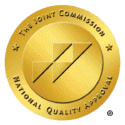
Is Alcoholism Considered a Progressive Disease?
Alcoholism is one of the most common forms of addiction in the United States. However, even though millions of people struggle with compulsive alcohol abuse, many don’t fully understand the true nature of this condition. For example, is alcoholism a progressive disease? Is alcoholism a chronic, progressive disease? And is there a difference between chronic and progressive?
Defining Alcoholism
Before we find out if alcoholism is a progressive disease, we should take a moment to review what, exactly, alcoholism is.
Alcoholism is an informal term for addiction to alcohol. Clinicians refer to this condition as alcohol use disorder.
Regardless of which term a person uses, alcoholism is characterized by the inability to limit how much or how frequently a person drinks.
As established in the fifth edition of the DSM-5, a person who meets at least two of the following criteria may be accurately diagnosed with alcohol use disorder:
- Often consuming alcohol in larger amounts or for a longer time than intended
- Having a persistent desire (or a history of unsuccessful attempts) to limit the amount and frequency of their alcohol use
- Spending large amounts of time acquiring and using alcohol, as well as recovering from its effects
- Experiencing powerful cravings for alcohol
- Failing to meet their obligations at work, in school, or at home as a result of alcohol use
- Continuing to use alcohol even after experiencing interpersonal or social problems due to prior use of the drug
- Abandoning important social, recreational, or work-related activities due to their alcohol use
- Using alcohol in a manner that is clearly hazardous (such as by using it in combination with prescription painkillers or other substances)
- Continuing to use alcohol even though they know they have incurred physical or psychological harm as a result of prior use
- Developing tolerance, which means that they are not affected as strongly by alcohol as they used to be, so they need to drink larger amounts to achieve the effects they are seeking
- Experiencing withdrawal symptoms, which can include physical and psychological distress, when they stop using alcohol, or when they are unable to acquire and use the drug
As defined by the DSM-5, a person who meets two or three of these criteria would be classified as having mild alcohol use disorder. Meeting four or five criteria would put a person in the moderate alcohol use category, while meeting six or more would qualify as severe alcohol use disorder.
Is Alcoholism a Progressive Disease?
Most reputable addiction experts say yes, alcoholism is a progressive disease.
In this context, “progressive” means that if a person doesn’t get effective treatment, their alcoholism will worsen over time. Their urges and compulsions can become more intense, they may begin to drink more frequently, they may consume larger amounts of alcohol in each session, and the negative effects that this behavior causes can become increasingly more severe.
The progressive nature of alcoholism is one of the many reasons why treatment can be so important. Without proper care, a person’s suffering is unlikely to lessen. With effective help, people can learn to manage their symptoms, reduce their distress, and improve their ability to establish an alcohol-free lifestyle.
Is There a Difference Between a Chronic Progressive vs Progressive Disease?
In addition to being a progressive disease, alcoholism is also a chronic disease. Defining alcoholism as “chronic” means that, as with diabetes, chronic pain, and certain other physical conditions, the goal of treatment isn’t to cure a person. Instead, the primary objective of treatment for alcohol addiction is to teach people how to manage their urges and compulsions so that they can protect their sobriety and remain in recovery.
Some progressive diseases can be cured. But for people who have chronic, progressive diseases such as alcoholism, the focus is reducing distress and increasing resilience to prevent continued harm.
What are the Long-Term Dangers of Alcoholism?
Alcoholism can be a source of considerable long-term harm, including damage to a person’s physical, psychological, and social well-being. The following are examples of the many negative outcomes that can result from untreated alcoholism:
- Damage to the heart, lungs, liver, and kidneys
- Elevated risk of certain cancers
- Malnutrition
- Injuries due to slips, falls, and other accidents while impaired by alcohol
- Memory problems and other cognitive deficiencies
- Development or worsening of anxiety, depression, or other co-occurring mental health disorders
- Academic setbacks, including failure and expulsion
- Difficulty finding and keeping a job
- Inability to establish financial independence
- Conflicts with friends and family members
- Irrevocably damaged relationships
- Social withdrawal and isolation
- Loss of hope for the future
- Thoughts of self-harm and/or suicide

When to Seek Treatment for Alcoholism?
The best time to seek treatment for alcoholism is the moment you realize that you have a problem. The sooner you seek treatment, the more likely you will be to avoid some of the more extensive damage that alcoholism can cause.
Having said that, there is no bad time to seek treatment for alcoholism. Even if you have been drinking heavily for years, this doesn’t mean that it’s too late to get help.
The moment you make the courageous decision to enter an alcohol addiction treatment program, you reduce your risk for continued harm. While you are in treatment, you can also begin to heal from the damage that alcoholism has inflicted on your life.
Contact Our Treatment Center for Alcoholism in Los Angeles, CA at Sanctuary Treatment Center
If you think you need professional help to quit drinking, Sanctuary Treatment Center may be the ideal place for you. Our alcoholism treatment center in Los Angeles, California, offers multiple levels of customized care, including detoxification, inpatient rehab, and outpatient treatment.
With the guidance and support of our skilled professionals, you can end your alcohol abuse and begin your journey toward improved health and successful, long-term recovery. When ready to get started, the Sanctuary team is here for you.
To learn more or to schedule a free alcohol addiction assessment, please visit our Contact Us page or call our center today.


